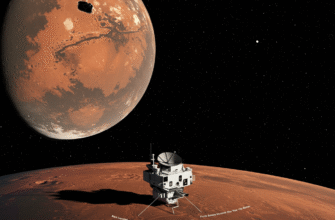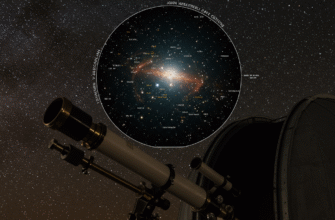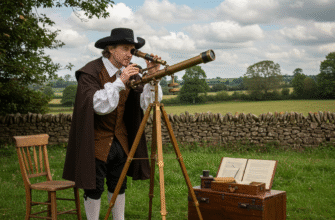Peer into the crisp, dark expanse of a winter’s night, and your eyes will inevitably be drawn to a glittering celestial warrior. Dominating the southern sky, the constellation of Orion, with his distinctive three-star belt and shimmering sword, is one of the most recognizable and celebrated stellar patterns. But beyond its astronomical beauty lies a rich tapestry of ancient Greek myth, a saga filled with mighty deeds, tragic flaws, and divine intervention. This is the story of Orion the Hunter, a figure as colossal in legend as he is in the heavens.
Who Was This Giant Among Men and Stars?
In the myriad tales spun by the ancient Greeks, Orion emerges as a figure of immense strength and prowess, a hunter of unparalleled skill. Often described as a giant, handsome and formidable, he roamed the wild lands, his club at the ready, his loyal dog, Sirius (represented by the brightest star in our night sky), by his side. But his origins, like many mythological heroes, are shrouded in multiple, sometimes contradictory, accounts.
One of the most peculiar and earthy tales of his birth involves Hyrieus, a poor but devout beekeeper from Boeotia. Childless and aging, Hyrieus offered generous hospitality to three disguised travelers: Zeus, king of the gods; Poseidon, lord of the seas; and Hermes, the divine messenger. To reward his piety, the gods asked Hyrieus for his dearest wish. He desired a son. Following their divine instructions, Hyrieus sacrificed a bull, urinated on its hide, and buried it in the earth. Nine months later, from that very spot, Orion sprang forth – his name perhaps even echoing the Greek word “ouron,” meaning urine, a testament to his unconventional conception. This parentage, with Poseidon as a key contributor, is often cited as the source of Orion’s ability to walk on water, a gift from his divine sea-god father.
Other traditions suggest a more direct divine lineage, perhaps the son of Poseidon and Euryale, one of the Gorgons, or even born directly from Gaia, the Earth herself, emphasizing his primordial, larger-than-life nature. Regardless of the specifics of his birth, his identity as a master huntsman remained constant, a skill that would lead him to both glory and his ultimate downfall.
The Hunter’s Entanglements: Tales of Passion and Peril
Orion’s life was a whirlwind of epic hunts, grand boasts, and intense relationships, both mortal and divine. His passions often ran as high as his hunting prowess, leading him into complex and dangerous situations.
Orion and Merope: A Blinding Love
One notable tale recounts Orion’s journey to the island of Chios, ruled by King Oenopion. There, the hunter fell deeply in love with Merope, the king’s beautiful daughter. Orion, ever the eager suitor, sought her hand in marriage. Oenopion, wary of the giant’s boisterous nature or perhaps simply unwilling to part with his daughter, set Orion a seemingly impossible task: to rid the island of all its dangerous wild beasts. Orion, with his exceptional skill, accomplished this feat with ease. However, Oenopion repeatedly postponed the wedding, plying Orion with wine and excuses.
Frustrated and inebriated, Orion’s patience snapped. In a drunken rage, he forced himself upon Merope. Outraged, King Oenopion sought a terrible revenge. He had Orion plied with more wine until he fell into a deep slumber, whereupon the king’s men brutally blinded the giant hunter. Cast out and sightless, Orion wandered, his despair profound. Guided by the sound of a Cyclops’s hammer, he eventually reached Lemnos, where the smith-god Hephaestus took pity on him. Hephaestus lent Orion his servant, Cedalion, to act as his eyes. Carrying Cedalion on his shoulders, Orion journeyed east, towards the rising sun. There, Eos, the dawn goddess, or Helios, the sun god himself, restored Orion’s sight with his healing rays. Some say Eos too became enamored with the handsome hunter, adding another layer to his romantic entanglements.
The Pleiades: An Eternal Chase
Another famous story links Orion with the Pleiades, the seven daughters of the Titan Atlas and the Oceanid Pleione. Accounts vary, but most suggest Orion became captivated by their beauty and pursued them relentlessly. Whether his intentions were amorous or aggressive, the sisters, along with their mother, fled his advances. For years, the chase continued across the land, until Zeus, taking pity on the exhausted Pleiades, transformed them into a cluster of stars. Orion, even in death, would continue his pursuit across the night sky, a celestial drama played out for eternity as his constellation appears to follow theirs.
Artemis: Companion, Adversary, or Both?
Perhaps the most complex and ultimately fatal of Orion’s relationships was with Artemis, the virgin goddess of the hunt and the moon. Initially, they were kindred spirits, sharing a passion for the wilderness and the thrill of the chase. They often hunted together, a formidable pair. However, their association was doomed, and the reasons for its tragic end are told in several conflicting versions.
One popular version attributes Orion’s death to the jealousy of Apollo, Artemis’s twin brother. Apollo, protective of his sister’s chastity and perhaps disapproving of her close bond with the mortal (or demigod) hunter, devised a cruel trick. He observed Orion wading far out to sea, with only his head visible above the waves. Apollo then challenged Artemis, renowned for her archery, to hit the distant, dark object, slyly suggesting it was a villain or some beast. Unaware of the deception, Artemis loosed an arrow with her customary precision, striking Orion dead. Her grief upon discovering the truth was immense.
Another powerful narrative highlights Orion’s own hubris as the cause of his demise. In a moment of arrogance, Orion boasted that he could hunt down and kill every animal on Earth. This monumental boast angered Gaia, the primordial Earth goddess, who felt her creatures threatened. To punish his impudence and protect her offspring, Gaia sent a giant scorpion, Scorpius, to attack the hunter. Despite Orion’s strength and skill, he could not overcome the scorpion’s venomous sting. He fell, a victim of his own excessive pride.
A third set of tales suggests a darker turn in Orion’s character. In these versions, Orion attempted to assault Artemis herself, or one of her sacred companions, the nymph Opis. Enraged by this violation of her honor or the sanctity of her followers, Artemis either killed him with her own arrows or, in a variation similar to the Gaia story, summoned the scorpion to deliver the fatal blow.
The Celestial Legacy: Orion’s Place Among the Stars
Whatever the precise cause of his earthly end, the gods, particularly Zeus or a remorseful Artemis, chose to honor the great hunter by placing him among the stars. His constellation became a prominent winter fixture, a glittering memorial to his legendary life. The scorpion that felled him, Scorpius, was also immortalized in the heavens, but placed on the opposite side of the sky. This celestial arrangement ensures that as Scorpius rises in the east, Orion sets in the west, forever fleeing his killer. Even in the afterlife, their cosmic conflict continues, a nightly reminder of his dramatic end.
The constellation of Orion is rich with bright, notable stars that ancient observers wove into his mythic form. The brilliant, reddish star Betelgeuse marks his right shoulder, often depicted as a supergiant nearing the end of its life. The luminous blue-white star Rigel signifies his left foot, a beacon in the winter sky. His iconic belt, formed by the three bright stars Alnitak, Alnilam, and Mintaka, is unmistakable, and hanging from it is his sword, a fainter line of stars that includes the Orion Nebula, a stellar nursery where new stars are born – a fitting emblem for a figure whose legend continues to inspire.
Many ancient cultures recognized the distinctive pattern of Orion. While the Greeks wove intricate tales of the hunter, other civilizations, from the Egyptians who saw him as Sah, a manifestation of Osiris, to the Babylonians who knew him as MULSIPA.ZI.AN.NA, the True Shepherd of Anu, also incorporated this stellar giant into their own cosmologies. This highlights the universal human fascination with the night sky and the shared impulse to find meaning in its patterns.
Orion the Hunter, therefore, is more than just a collection of stars; he is a powerful echo from the ancient world. His stories explore timeless themes of skill, passion, pride, betrayal, and the inevitable consequences of one’s actions. He reminds us of the close connection the Greeks felt with their gods and the natural world, and how they saw human dramas reflected in the grand theatre of the cosmos. Each winter, as he strides across the heavens, Orion invites us to look up and remember the enduring power of myth.








